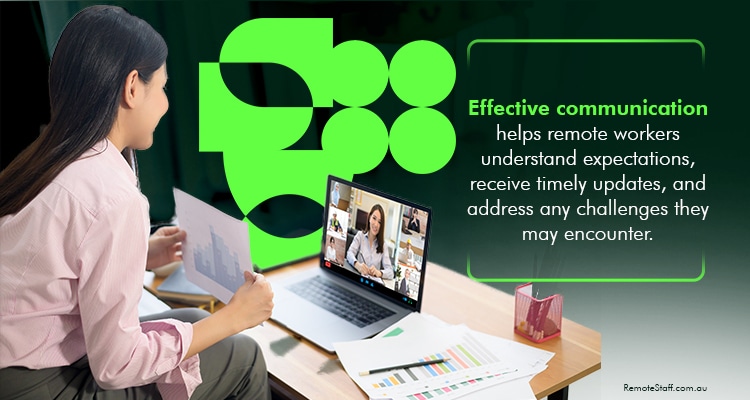Outsourcing remote staff is truly beneficial for businesses.
It gives companies access to a global talent pool, reduces operational costs, and provides flexibility in scaling their workforce.
For example, when you hire a virtual assistant, you can delegate administrative tasks, streamline operations, and focus on strategic initiatives, all while saving on overhead costs associated with in-house staff.
However, there is one major concern — will the staff be AS productive without in-person supervision?
That’s why many first-time business owners tend to micromanage their online staff.
Unfortunately, this approach often backfires in several ways.
Inhibits Autonomy and Creativity
When you closely oversee all tasks, you won’t exactly encourage independent thinking.
Based on a study, the lack of autonomy discourages employees from trying new things, solving problems on their own, and sharing fresh ideas, which slows down creativity and innovation in the team.
Reduces Efficiency
When you micromanage every detail, it causes delays as your remote workers await your feedback on most tasks.
Can you imagine how much slower your virtual assistant could respond to clients if they have to wait for you to approve every email?

Weakens Trust and Morale
Micromanaging hurts trust and morale because it implies doubt in your team’s abilities.
When you closely scrutinize and control every aspect of your team’s work, it implies that you don’t believe that they’re competent or capable enough to complete tasks on their own.
Increases Stress and Burnout
When you constantly micromanage, it creates a sense of anxiety and fear among remote workers, as they feel the need to constantly prove themselves – even when they don’t.
Despite the belief that this high-pressure environment is helpful, it actually leads to more stress and burnout, which lowers productivity and increases turnover rates.
What To Do Instead
Because micromanagement harms productivity and team morale, it’s crucial to consider better ways to create a positive and effective work environment.
Here are some tips for managing your remote team better:
Set Clear Expectations and Goals
Instead of dictating every step of the process, set clear goals and expectations for remote workers — and give them flexibility so long as they accomplish these. Make sure they understand their role and how this fits into the organization’s goals.
For instance, if you hire a virtual assistant to handle your email inbox, set expectations for how fast emails should be answered, which ones need urgent attention, and any preferences for sorting and prioritizing messages.
This way, you empower them to take ownership of their work and make decisions independently while building trust and accountability.

Communicate Effectively
Effective communication helps remote workers understand expectations, receive timely updates, and address any challenges they may encounter.
Also, open and transparent communication builds trust, fosters accountability, and keeps remote workers engaged and motivated.
Encourage Independence
This is especially important if you want your remote workers to function without too much supervision.
For example, if you hired an admin assistant, you can delegate the decision-making authority on some tasks like scheduling meetings, managing correspondence, and organizing files.
Give them the freedom to use their skills and expertise, fostering a sense of empowerment and responsibility to accomplish tasks in their own way.
Trust Your Team
When you trust your remote workers to make decisions and take ownership of their tasks, it encourages them to work independently and creatively.
It fosters a culture of autonomy, accountability, and collaboration- and makes them feel valued and respected for their contributions.
With the tips above, you can effectively manage your remote team without micromanaging them.
Want to build your dream remote team? You can call us or schedule a callback to find your remote staff today!
Leandro is a content creator and digital nomad who started his career as a remote working content writer. He is an advocate of location independent sources of income. And he believes that everyone has the ability to be one as well. If you have any content requests and suggestions, feel free to email him at leandro@remotestaff.com.





















